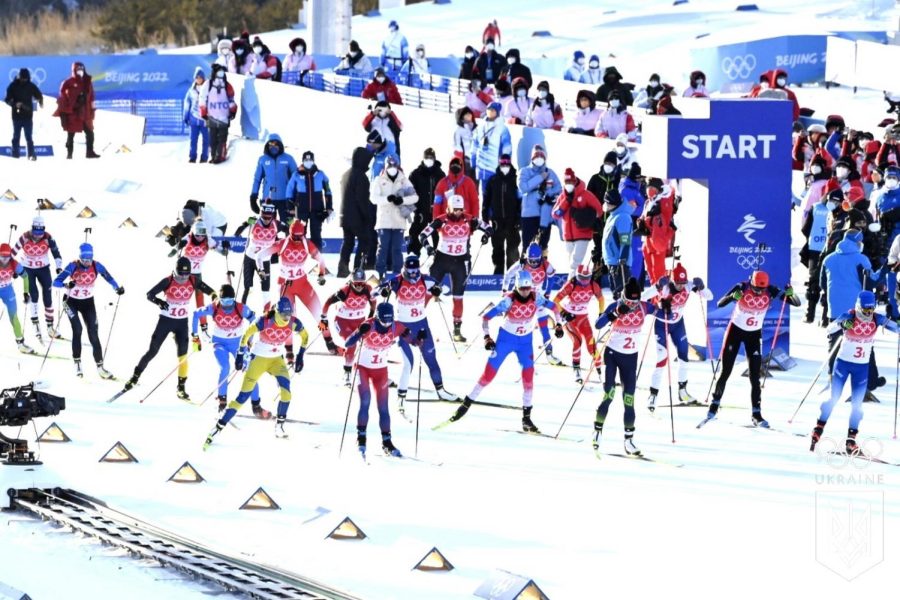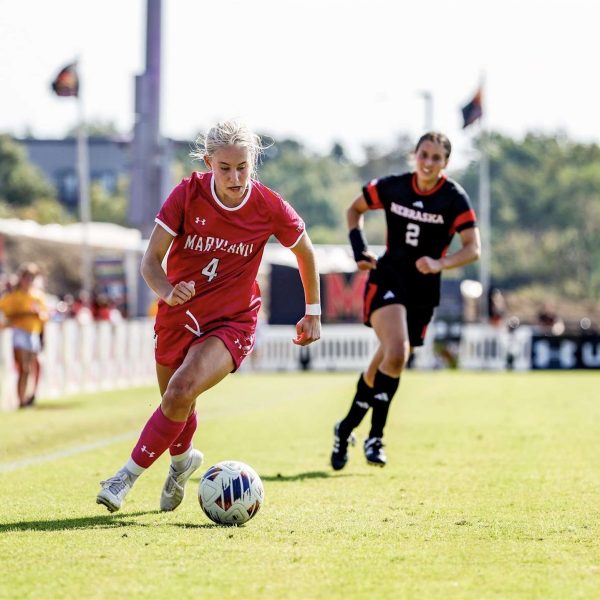2022 Beijing Winter Olympics displayed challenges for athletes amidst public controversy
Image used with permission from Google Commons
Racers trek along in a biathlon during the skiing session at the Beijing Winter Olympics. Biathlons consist of cross country skiing and rifle shooting. Norway won six gold medals in these events.
The Winter Olympics, which ran from Feb. 4 to Feb. 20, have proven a new set of trials and tribulations for the athletes worldwide who competed in Beijing for the 2022 edition. This year, the quadrennial athletic competition has been the host of not only record-setting events, but has also been a politically tumultuous and controversial topic in media coverage.
This controversy began with a message from the Biden administration declaring a boycott of the Beijing games due to recent genocide and human rights abuses by China. Per the Center for Strategic and International Studies, the boycott “means that the United States will not send a high-level, official delegation to the Olympics.” Taken together with the NHL’s decision to have players miss out on the Olympic hockey games, this move meant more uncertainty for team USA. Nevertheless, the U.S. Olympic committee still chose to participate in the games.
Notable events included alpine skiing, ice hockey, curling, figure skating and bobsledding. “Ski jumping is my favorite event, because Poland’s good at it,” junior Will Rusiecki said. “I like hockey, because I play it. I would say bobsledding is pretty good too.”
In alpine skiing, team Switzerland found their footing, taking home five gold medals in the sport (leading all other countries). However, team USA did not fare as well; notoriously, skier Mikaela Shiffrin struggled immensely in her events, and the team ended with no gold medals in the sport.
The Olympics also debuted the new women-only bobsledding competition known as monobob. Team USA won gold and silver medals in this variant, with Kaillie Humphries taking gold and Elana Meyers Taylor taking silver.
Ice hockey also made history, with team Finland beating the Russian Olympic Committee 2-1 to win their first gold medal in the event. Meanwhile, in the women’s event, team Canada ascended to glory over team USA 3-2. “My favorite [event] was the women’s hockey because Canada beat [the] USA after falling short to them last Olympics,” sophomore Connor Jackson said.
Other big names from Beijing included Eileen Gu of team People’s Republic of China in freestyle skiing, Chloe Kim of team USA in snowboarding and Nathan Chen of team USA in figure skating. Other triumphs included Britain’s dominance in men’s curling and Sweden’s nail-biter finish to win gold in women’s curling. Finally, Shaun White ended a monumental Olympic career, albeit without a medal.
In the final medal count, team Norway–with a staggering six gold medals in the sport of biathlon–won with 16 gold medals, team Germany ended in second place with 12 gold medals and team People’s Republic of China finished in third place with nine gold medals. Finally, Team USA placed fourth with eight gold medals.
Above all, Beijing proved that, in the end, life does not always work in one’s favor, even with constant hard work. “[Yuzuru] Hanyu took a challenge by not following the ordinary skating routine. Instead he challenged himself to land the quadruple axel, a very difficult move no one in history has ever attempted,” junior Emily Zhang said (Hanyu was unable to land the quadruple axel, placing fourth in men’s single skating).
Your donation will support the student journalists of Thomas S. Wootton High School. Your contribution will allow us to purchase equipment and cover our annual website hosting costs.
Carter Jones is a 2022 graduate.







